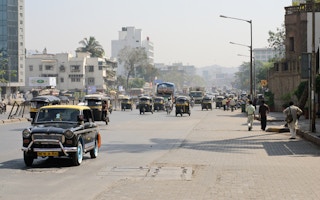On weekdays, Shrinidhi Hande, an IT consultant in Chennai, commutes to work on a motorcycle. On weekends, when he visits friends and family out of town, he rents a car from Zoomcar or Myles, two of a handful of car-sharing services in India. “Buying a car is a total waste of money,” he says.
“Using these services, I get to drive the latest models without having to pay monthly installments, insurance, or maintenance.”
The startups, modeled after US car-sharing service Zipcar (CAR), are gaining in popularity. Slow economic expansion has frozen income growth, and prime lending rates have risen 26 per cent in the past five years, discouraging people from taking out car loans.
“A lot of people don’t want to invest in cars,” says Abdul Majeed, a partner at PricewaterhouseCoopers in Chennai. “With traffic congestion and cost of ownership rising, and with poor public transport in most cities, car-sharing is bound to take off.”
For younger Indians joining the workforce, car-sharing comes free of the hassle of maintaining the cars.
Zoomcar, based in Bangalore, has attracted US investors, including venture capital firm Sequoia Capital, which led an $8 million investment round in October, and former US Treasury Secretary Lawrence Summers.
“
With traffic congestion and cost of ownership rising, and with poor public transport in most cities, car-sharing is bound to take off
Abdul Majeed, a partner at PricewaterhouseCoopers
Americans Greg Moran and David Back started the company in February 2013 with $650,000. They raised another $3 million last year. Summers was an early investor. “There were small-time operators, mom-and-pop type shops that didn’t have the technology and the right product,” says Moran, who, along with Back, graduated from the University of Pennsylvania in 2007.
Zoomcar’s rates begin at 45 rupees (73¢) per hour for an electric Mahindra Reva e2o. There’s no membership fee, and drivers must provide a credit card or debit card. The fleet started with seven cars and has expanded to 300 in Bangalore and Pune, near Mumbai. Ridership is exceeding 5,000 bookings a month, Moran says, and Zoomcar will have 200 additional vehicles by yearend.
Carzonrent India, based in New Delhi, introduced its sharing service, Myles, with 14 cars in three cities last year. It now has 600 cars in 16 cities, according to Sakshi Vij, executive director for corporate strategy and planning. Carzonrent’s backers include Indian investment firm WestBridge Capital Partners.
The most recent entrant is MiCar Sharing Technologies, begun in June by Suyagya Agrawal. It has 50 cars in five locations in and around New Delhi. Agrawal has funded the venture with bank loans and money from his father, the startup’s executive chairman. He says he’s talking to investors to expand to new cities and add to the fleet.
Agrawal and the others are trying to change old habits. Traditionally, rental cars in India come with chauffeurs. Also, owning a car in India is a status symbol, another big challenge these new companies have to overcome, according to Wilfried Aulbur, a managing partner in Mumbai with Munich-based Roland Berger Strategy Consultants.
But the startups are banking on Indian consumers’ price consciousness. “A self-drive car comes at a third the cost of a chauffeur-driven car,” says Myles’s Vij. “This product is the future of car rental.” Zoomcar offers Ford Motor’s (F) Figo hatchback for 70 rupees an hour. Myles recently added Tata Motors’ (TTM) Nano Twist, the world’s cheapest car, to its fleet at 99 rupees an hour.
The sharing services also have to compete with US-based car service Uber, which launched in Bangalore in August 2013. Uber now operates in 10 other cities, making India its biggest market after the US.
On Nov 20 it started a service using very small cars under the brand UberGO, promoted as an alternative to India’s nonair-conditioned taxis. The fares start at about 9 rupees per kilometer—including the flag-down fare, a 10-km, 60-minute ride would cost about 220 rupees.










